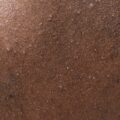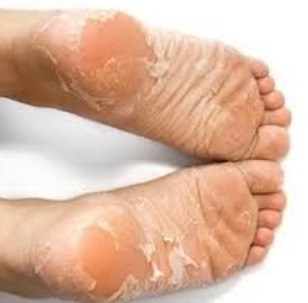An abscess is a localized collection of pus caused by an infection. It can occur anywhere in the body and is often accompanied by inflammation, swelling, and pain. Abscesses can be superficial, such as skin abscesses, or deep-seated, affecting internal organs like the lungs or liver.
What Causes Abscess?
Abscesses are typically caused by bacterial infections. Common bacteria responsible for abscess formation include Staphylococcus aureus and Streptococcus species. These bacteria can enter the body through cuts, wounds, or compromised skin barriers, leading to infection and abscess formation.
Types of Abscess
Skin Abscess
Skin abscesses, also known as boils or furuncles, are localized infections of the skin and underlying tissues. They often present as painful, red nodules filled with pus.
Internal Abscess
Internal abscesses can develop in various organs, such as the liver, lungs, or brain. They are often associated with underlying conditions like pneumonia, appendicitis, or infections following surgery.
Dental Abscess
Dental abscesses occur as a result of tooth infections. They can be periapical (around the tooth root) or periodontal (affecting the gums and supporting tissues). Symptoms include severe toothache, swelling, and pus discharge.
Symptoms of Abscess
Common symptoms of an abscess include:
- Sensitive to touch on the affected area
- Localized swelling and slight redness
- Induration at the site
- Pus or fluid drainage
- Fever and chills
- Generalized malaise or fatigue
- Mild pain and it would great burning and sharp cutting pains.
Diagnosis
Diagnosis of an abscess typically involves a physical examination, imaging tests like ultrasound or CT scans, and fluid analysis from the abscess for bacterial culture.
Complications of Abscess
If left untreated, abscesses can lead to serious complications such as:
- Sepsis: Systemic infection spreading throughout the body.
- Abscess rupture: Spreading infection to surrounding tissues.
- Organ damage: In severe cases, abscesses can damage organs or lead to abscess formation in vital organs.
Prevention of Abscess
Preventing abscesses involves:
- Practicing good hygiene, especially handwashing.
- Treating underlying infections promptly.
- Avoiding sharing personal items like towels or razors.
- Maintaining a healthy lifestyle to boost immune function.
- Education and Awareness .
Importance of Dental Hygiene in Preventing Abscess
Proper dental hygiene, including regular brushing, flossing, and dental check-ups, plays a crucial role in preventing dental abscesses. Addressing tooth decay and gum disease early can prevent abscess formation.
Home Remedies for Abscess
Some home remedies for managing abscess symptoms include warm compresses, over-the-counter pain relievers, and maintaining proper wound hygiene. However, these remedies are complementary and should not replace medical treatment.
Management when occur in families
Abscesses themselves are not contagious, meaning they cannot be directly transmitted from person to person. However, the bacteria that cause abscesses can be contagious. For example, if an abscess contains Staphylococcus aureus bacteria and the pus from the abscess comes into contact with another person’s skin or mucous membranes, it can potentially lead to an infection in that person.
To prevent the spread of bacteria and reduce the risk of infection:
- Avoid direct contact with the pus or drainage from an abscess.
- Practice good hand hygiene by washing hands thoroughly with soap and water, especially after handling wounds or coming into contact with potentially contaminated surfaces.
- Avoid sharing personal items like towels, razors, or clothing with someone who has an abscess.
- If caring for someone with an abscess, follow proper hygiene practices and use protective measures, such as wearing gloves, to minimize exposure to bacteria.
- Try to keep the affected families away from infant or child.
By taking these precautions, you can help prevent the spread of bacteria associated with abscesses and reduce the risk of infection transmission.
When to See a Doctor for Abscess
Seek medical attention if you experience:
- Severe pain or swelling with sensitive to touch
- Persistent fever or chills and might be vertigo
- Worsening symptoms despite home care
- Difficulty breathing or swallowing (for throat abscesses)
- Signs of systemic infection like confusion or rapid heartbeat
FAQs about Abscess
In some cases, small abscesses may resolve on their own with proper home care, such as warm compresses and keeping the area clean. However, larger or more severe abscesses usually require medical intervention for complete healing.
The most common way to heal an abscess is through a medical procedure called incision and drainage. This involves making a surgical opening in the abscess to drain the pus and relieve pressure. Antibiotics may also be prescribed to treat the underlying infection.
The duration of an abscess depends on its size, location, and individual factors. With proper treatment, most abscesses start to improve within a few days to a week. However, larger abscesses or those with complications may take longer to heal.
Abscesses can be effectively treated and cured with proper medical care, including drainage, antibiotics, and wound care. However, it’s important to address any underlying conditions or risk factors to reduce the risk of abscess recurrence.
Abscesses themselves are not contagious, but the bacteria causing the infection can spread to others through direct contact or contaminated items.
The healing time for an abscess after drainage varies depending on its size, location, and individual health factors. It may take several days to weeks for complete resolution.
Conclusion
Abscesses are localized collections of pus caused by bacterial infections. They can occur in various body locations and require prompt diagnosisto prevent complications. Practicing good hygiene, seeking timely medical care, and addressing underlying infections can help prevent abscess formation and promote overall health.





